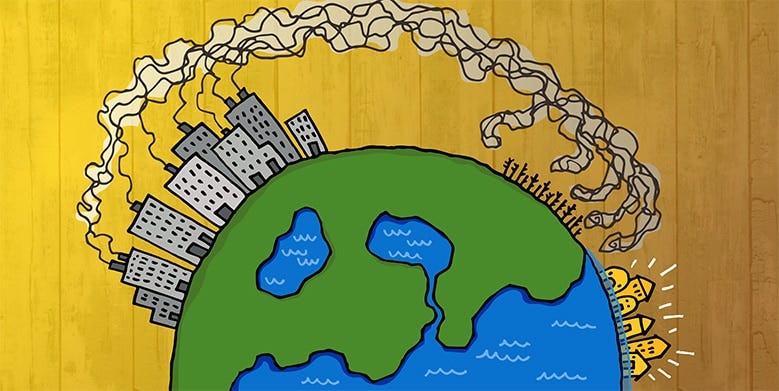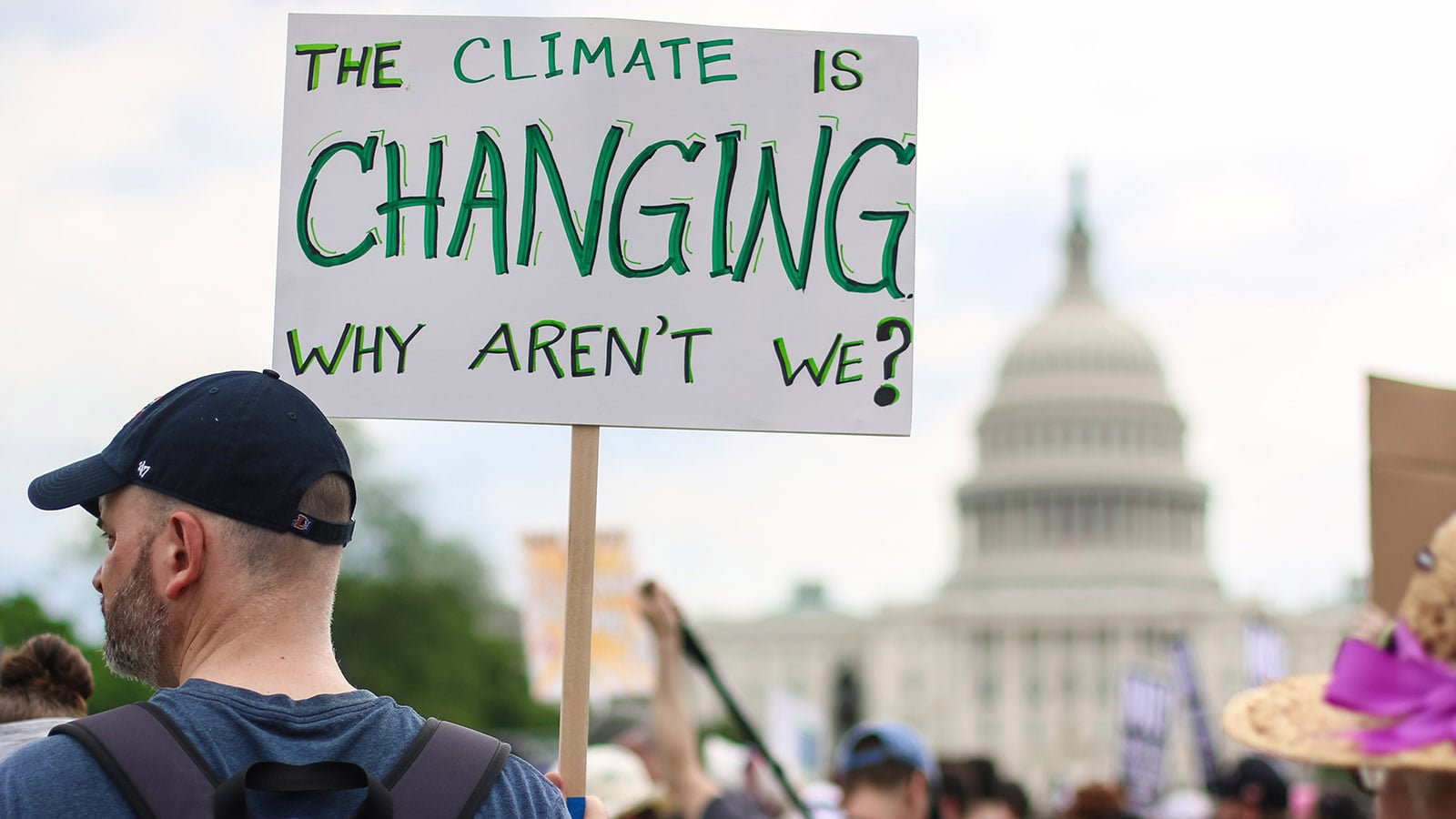Inequalities are on the rise like never before. Our societies are getting increasingly polarised with each passing day. Climate change is already underway to impact humanity and natural systems. With all this, there is no challenge to the statement that we need to take action.
However, there is the question of justice in the approaches that are commonly adopted in the policy response to these key issues.
One of the “solutions” proposed for climate change, which is the biggest problem we face today, is that of reducing population growth. The narrative of overpopulation being the root cause reduces complex realities to simplistic casualties and fosters negative gender, class, caste, religious, and racial stereotypes.
It projects the blame on the poor people, contending that because they have too many children, they are degrading their environment. In essence, solely blaming population instead of addressing inequality, injustice, hunger, poverty, environmental degradation, migration and exploitative profiteering has served as a political smokescreen for a long time.
With respect to climate change, limiting birth often becomes the primary goal instead of eliminating fossil fuel.

Most of the policy decisions and actions being taken underlie the mainstream marginalist economic approaches or neoliberal thoughts. At the root of the ‘too many and too far‘ assumptions of neoliberalism is the laissez-faire approach where it is believed that the free reign to markets will fix everything.
This is why we see policies that are trying to create conditions for the laissez-faire to work. Removing entry barriers for businesses, creating investment-friendly trade systems, easing the direct taxes on the capitalists and increasing indirect taxes on the poor are ways of enabling the markets to operate “freely“.
In such approaches, there is a fundamental denial of the reality of “people” as the starting point for policy. There is denial of the truth of the lived experiences of the common people. It is these experiences that recognise our interconnected being, and ensures care-getting
Take for instance, the Environmental Impact Assessment 2020 which proposes the removal of several activities from public consultation, making it easier to get environmental clearances. In essence, the markets are given the freedom to devastate ecological systems and livelihoods. Therefore, with such policy aspirations, how can we expect actual response that would challenge the status quo and bring some change?

Some other much critiqued assumptions of neoliberalism include – no production is done within households, work is only what is done for pay, there is no need to theorise the household but rather enough to just know the preferences of the household head, the “rational man”, it is the GDP that reflects our well-being – and so on.
At a time when the air is rapidly filling up with carbon due to the congestion problem, the doctrine of pricing according to marginal costs makes no sense at all.
Also read: Population Control And Its Prejudices Against Marginalised Bodies
In such approaches, there is a fundamental denial of the reality of “people” as the starting point for policy. There is denial of the truth of the lived experiences of the common people. It is these experiences that recognise our interconnected being, and ensures care-getting.
Climate colonialism is also exhibited when a country like the United States, having the historical responsibility for huge carbon emissions, creates climate targets for the rest of the developing world, and places them under explicit or implicit pressure. If the US does not set ambitious enough targets for itself, it consumes most of the world’s carbon budget
Destroying this shared common destroys the idea of common goods. Therefore, if you are from the Adivasi community in India struggling against the large scale harvesting of medicinal plants, the insistence of pharmaceutical companies that everything must be patented, appropriates your medicinal plants, and denies the truth of your experiences and systems of medical knowledge.
Though colonisation saw its formal end, the most vulnerable countries in the global south still remain in a subordinate position to those in the global north due to the existing socio-economic systems. The vulnerable countries remain trapped to extract minerals like crude oil to fuel the industrialised economies of the global north.
The recent negotiations between the European Union(EU) and 78 African, Carribean, and Pacific countries for the Post-Cotonou agreement are an example of how the EU was attempting to gain undistorted access to the extractive sectors in these geographies. Such policy agreements rearticulate that colonial relations often thrive in the guise of human rights protection, environmentalism, and migration response.
Climate colonialism is also exhibited when a country like the United States, having the historical responsibility for huge carbon emissions, creates climate targets for the rest of the developing world, and places them under explicit or implicit pressure. If the US does not set ambitious enough targets for itself, it consumes most of the world’s carbon budget.
Though the Green New Deal is being highly appreciated in the progressive circles, one can not help but speculate that this may also lead to a global land rush. With the climate fluctuations, there would be a need for vast tracts of land on which to carry out new agricultural policies. As we know, much of the uninhabited land belongs to the indigenous communities and least politically powerful countries. For this group, these policies could mean trysts with powerful private companies for their land.

We have witnessed how land grab functions, especially in the financial crisis of 2007-08. The rise in commodity prices made food items more expensive which meant that arable land, the basic requirement for growing food became highly lucrative. With the new farm laws, commodity prices have already started rising and we may soon witness land grab from Adivasi and rural communities.
What we need is to view climate change as connected to all other crises and not in isolation from the issues of our health, jobs, economic justice, housing, transportation, etc.
Policy-making institutions consist largely of economists, and there is a dire need of the inclusion of experts in other fields of studies like sociology and anthropology who could highlight the social and cultural impacts of policy decisions. The economic perspective of things too, needs heterodox and pluralist approaches to knowledge creation and then policy implementation
Technocratic solutions are another set of approaches that deny the existing structural imbalances and can further exacerbate the risks faced by people due to inequalities. Countries like the US or in the EU generate 12 million tonnes of e-waste annually and what is worse is that 50-80% of this waste is shipped off to countries like India and China when it is not disposed of completely.

The study shows that such e-waste affects women and children disproportionately and more so in the disadvantaged communities. Imagine the consequences of electric battery cars and other technological solutions implemented in the US without any heed to these unacknowledged issues.
At such a juncture when one crisis is set to interact and amplify another crisis, how can we afford to look for solutions in the approaches that created them in the first place?
Also read: How Holding Corporates Accountable And Empowering Women Can Alter Climate Change
Policy-making institutions consist largely of economists, and there is a dire need of the inclusion of experts in other fields of studies like sociology and anthropology who could highlight the social and cultural impacts of policy decisions. The economic perspective of things too, needs heterodox and pluralist approaches to knowledge creation and then policy implementation.

Intersectional feminist research for instance, can look for answers by placing climate change within interlinked structures of oppression. Ethics of care work, focusing on human life rather than commercial life, community driven knowledge and practices, and frameworks of cooperation and interdependence provide us analytical tools to respond to our socio-economic problems.
Social innovation rather than technocratic and populist ideas are the need of the hour. Joining the struggles of people at the grassroots, bridging the gap between academics and activists, and listening to the most vulnerable are the ways to go. As they say, it’s an all hands on deck situation.
Farwa Naqvi is a student of economics pursuing a Masters at the Indira Gandhi National Open University (IGNOU). She is interested in carrying out research in the interaction of technology with our society through a heterodox feminist approach. She finds both peace and turmoil in reading and writing Ghazals
Featured Image Source: iNews




